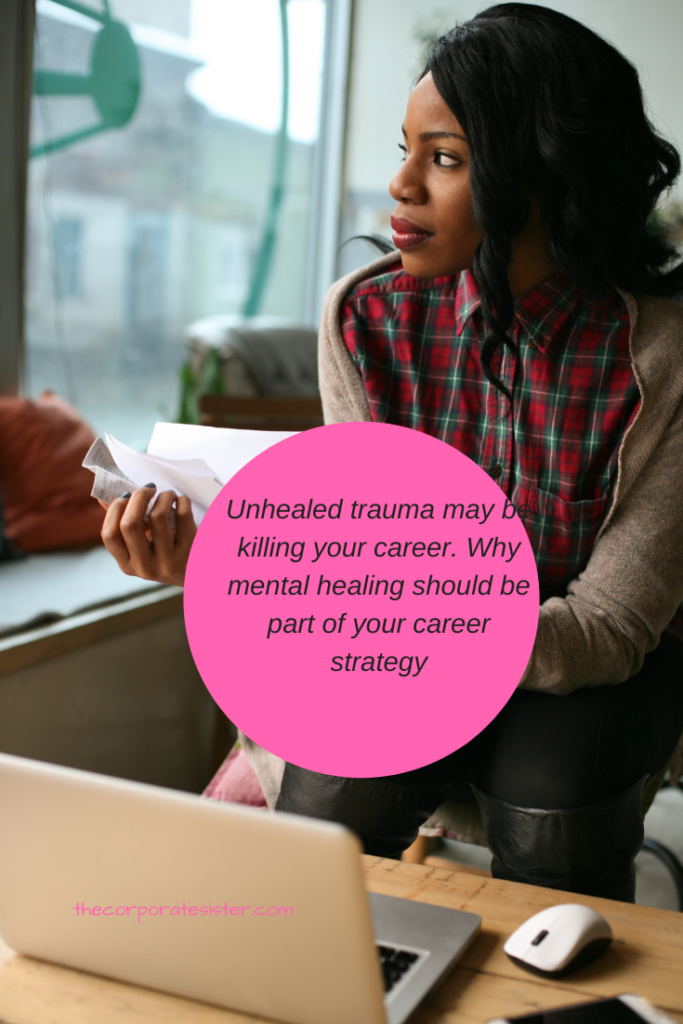A woman suffering from severe trauma from being psychologically abused in her childhood once told me about not being able to speak up at work to save her life. Another woman who’s had a difficult relationship with her mother revealed to me she could not trust any source of authority in the workplace. Yet another woman who grew up without her dad found herself lowballing every job offer, jumping from company to company looking for a sense of fulfillment and purpose.
None of us is immune from trauma. As a matter of fact, most, if not all of us, have experienced some form of trauma or another, stemming from as far back as childhood and reverberating in many parts of our lives. However, we seldom realize that one of the areas profoundly affected by is our careers. I remember working with a business coach a few years back. One of the most shocking questions she asked me back then as we working through some business challenges, was if I knew of any resentment or trauma I was holding on to. As I came to understand later on, the very negative mental health patterns and trauma we carry through our lives can prevent us from reaching our full potential, not just personally, but also professionally.

As a matter of fact, when it comes to trauma, women tend to be more affected than men. According to the National Center for Post-Traumatic Stress Disorder (PTSD), five in ten women suffer through a traumatic event. While both men and women experience the same PTSD symptoms, some symptoms are more commonly experienced by women, who also tend to report different traumas than men. This has certainly been intensified by the current COVID-19 pandemic, which has disproportionately affected women in general, and mothers in particular.
If you’ve been held back in your career, and do not quite understand why, there may be some unhealed trauma at the root of it. Childhood trauma especially can not only impact your physical condition in the form of heart attacks, obesity cancer or diabetes. It can also manifest in your life and career as lack of self-esteem, confidence and/or self-blame issues.
This can be compounded even further by the sometimes negative impact our careers can have on our mental health, from the exhausting impact of gender discrimination, the disheartening effect of lack of gender equity, not to mention the stress of professional competition, heavy workflow and frequent loss of self through work.
Furthermore, when trauma creates certain types of pathologies in individuals, it can also affect an entire workplace. For instance, research shows an existing association between Chief Executive Officer (CEO) and fraudulent behavior, leading to corporate scandals of disastrous proportions. Considering the impact of corporate scandals, as well as the interplay between leadership traits, corporate strategy and stakeholders’ interests, the impact of unhealed trauma at work cannot be understated.
As all these issues can seriously hinder one’s career progress and success, it is crucial to seriously consider and address them as part of one’s career development. This can be done through a personal process of self-introspection, some serious soul-searching, or even therapy. On a larger scale, it can also serve as a warning not to relegate mental health to the back burner when considering important career decisions on a personal and even organizational level. Instead, integrating mental health as an integral part of career development and corporate strategy should become a priority.
Do you believe unhealed trauma may kill one’ s career? Have you had to deal with unhealed trauma in your career?
The Corporate Sis







